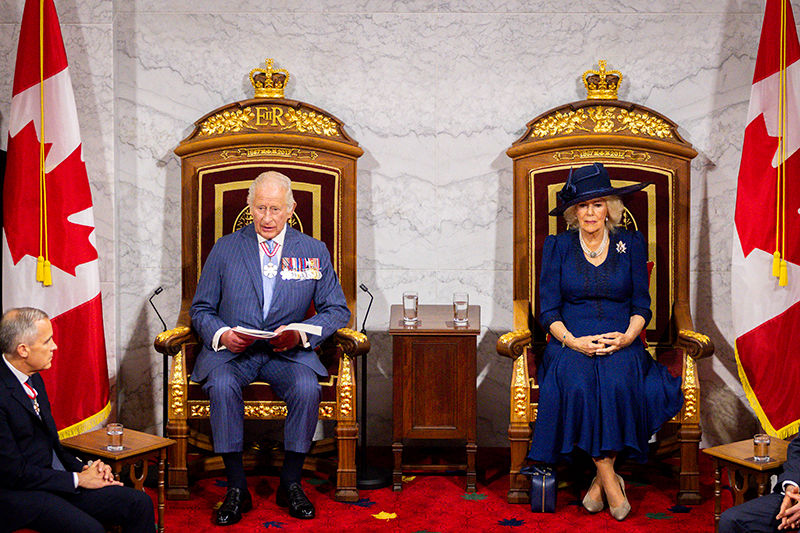Key Outcomes and Strategic Decisions from the 2025 NATO Summit in The Hague
- The Westminster Gazette
- Jun 25, 2025
- 4 min read
Updated: Aug 20, 2025
The 2025 NATO Summit, held on June 24-25 in The Hague, Netherlands, was a defining moment amidst a rapidly evolving global security environment. With over 6,000 attendees, including heads of state, defense ministers, and journalists, the summit was centered on enhancing NATO's collective defense capabilities and reinforcing support for Ukraine.
This post explores the significant highlights and strategic decisions made during the summit, focusing on their implications for the future of NATO and the wider geopolitical landscape.
Date and Location
The summit convened at the World Forum in The Hague, a city rich in history and international diplomacy.

Defense Spending
A key outcome from the summit was NATO allies' commitment to increase their defense spending to 5% of their Gross Domestic Product (GDP). This ambitious target includes a minimum of 3.5% allocated to core military needs such as salaries, weapons, and ammunition, while the remaining 1.5% is earmarked for activities that enhance defense, like critical infrastructure protection, cybersecurity, and innovative technologies.
This commitment illustrates a growing acknowledgment among member states of the necessity to elevate military capabilities in light of evolving threats. For instance, increased spending may enable member nations to modernize their technology and enhance their readiness. If all NATO members reach this target, the alliance's collective defense budget could exceed $1 trillion, significantly boosting its deterrence capabilities.
Support for Ukraine
Given the ongoing aggression from Russia, NATO reaffirmed its steadfast support for Ukraine during the summit. Allied nations expressed solidarity with the Ukrainian people and committed to providing ongoing military and humanitarian assistance. This support is crucial as Ukraine works to defend itself against external threats.
Ukrainian President Volodymyr Zelenskyy addressed the summit, emphasizing the importance of strengthening collaboration between NATO and Ukraine. He highlighted the potential for enhancing Ukraine's defense industry and the need for consistent international backing to safeguard the country's sovereignty and territorial integrity. Reports indicate that international military aid to Ukraine has increased by 30% over the past year alone, underscoring the alliance's commitment to bolstering Ukraine's defenses.

Industrial Capacity
Recognizing the need for a strong defense industrial base, the summit featured a NATO Summit Defence Industry Forum designed to boost production among member states. This initiative aims to enhance transatlantic cooperation in defense industry matters while increasing the production capacity of NATO members.
By cultivating collaboration among defense industries, the initiative intends to ensure that all members can respond effectively to security challenges and maintain a technological advantage. Enhancing industrial capacity is crucial for meeting the demands of modern warfare. For instance, a report indicated that NATO's collective military-industrial output could increase by 40% within the next five years due to such initiatives.
Focus on Deterrence
The central theme of the summit was to strengthen NATO’s deterrence and defense capabilities in the face of a shifting security environment. With growing geopolitical tensions, particularly in Eastern Europe, NATO's ability to deter aggression is more vital than ever.
The commitment to increased defense spending and bolstered industrial capacity forms part of a broader strategy to ensure that NATO remains a strong force against potential threats. By investing in modern military capabilities and promoting cooperation amongst member states, NATO aims to deliver a clear message to adversaries: the alliance is prepared to defend its members.
Dutch Initiative
The Netherlands played a pivotal role in hosting the summit and facilitating open discussions among member nations. The Dutch government emphasized the significance of collective security and the need for a unified response to current global challenges.
As the host nation, the Netherlands showcased its commitment to NATO and its forward-thinking vision for the alliance's future. The Dutch initiative reinforces the importance of strong leadership and teamwork among member states to tackle shared security challenges effectively.
Spanish Exemption Request
During the summit, Spain sought an exemption from the newly established 5% GDP spending target, citing economic constraints within its national budget. This request sparked discussions among allies about balancing national priorities with collective defense responsibilities.
While Spain's request highlights the complexities involved in national budgeting for defense, it also emphasizes the necessity for solidarity among NATO members. The outcomes of these discussions will be crucial in shaping the alliance’s future approach to defense spending and ensuring that all members contribute to maintaining collective security.
Key Focus and Outcomes
The summit's focus on increasing NATO members' annual defense spending to a new 5% target signals a significant shift in the alliance's security strategy. This commitment encompasses a comprehensive allocation of resources to core defense needs and associated activities, ensuring NATO remains ready to face various security challenges.
The pledge to enhance transatlantic defense industrial cooperation and ramp up production is a necessary step to boost NATO's collective capabilities. By encouraging collaboration among its members, NATO aims to develop a more resilient and agile defense posture.
Looking Ahead
The 2025 NATO Summit in The Hague represented a crucial moment for the alliance as it navigates a complex and changing security landscape. The commitments made during this summit—higher defense spending, ongoing support for Ukraine, and enhanced industrial capacity—underline NATO's determination to adapt to new challenges and strengthen its collective defense.
As NATO approaches the 2026 Summit in Türkiye, the decisions made in The Hague will critically influence the future of the alliance as it works to ensure global security. Collaborative efforts, technological advancement, and resilience will remain essential in addressing the multifaceted threats faced by NATO member states and the broader international community.




Comments